Test taking is one of those things that you are either really good at, or have to try really really hard to be good at. I personally never had a problem with exams until I started taking standardized tests. Studying for the SAT, MCAT, and Medical Licensing Exams have all been associated with such negative emotions, that I have tried to block them out from my memory completely. That being said, over the years I have developed a system that works for me, and using that system I have passed all of the required tests to get to where I am today, including the Internal Medicine Board Exam!
If you are like me and get super stressed out over tests, this article is for you. And if you are one of those people who aces every test without trying, I envy you more than you know. These are my general steps to preparing for any big exam, and at the end I will include a paragraph about studying specifically for ABIM. So without further ado, here’s how to pass a test in 10 ways.
1. Make a Schedule
 When you start preparing to study, it’s best if you have a set schedule. Know how many pages you need to read each day to get through a specific book, or how many questions you need to do to get through a specific Q bank. Doing this will keep you on track and let you know if you are falling behind schedule. I like to have a list of things to do each day so that I can check them off when they get done- this makes me feel like I accomplished what I needed to. You can also add a few things to the end of your schedule for that week, so if you have extra time you can get those out of the way as well.
When you start preparing to study, it’s best if you have a set schedule. Know how many pages you need to read each day to get through a specific book, or how many questions you need to do to get through a specific Q bank. Doing this will keep you on track and let you know if you are falling behind schedule. I like to have a list of things to do each day so that I can check them off when they get done- this makes me feel like I accomplished what I needed to. You can also add a few things to the end of your schedule for that week, so if you have extra time you can get those out of the way as well.
2. Be Realistic
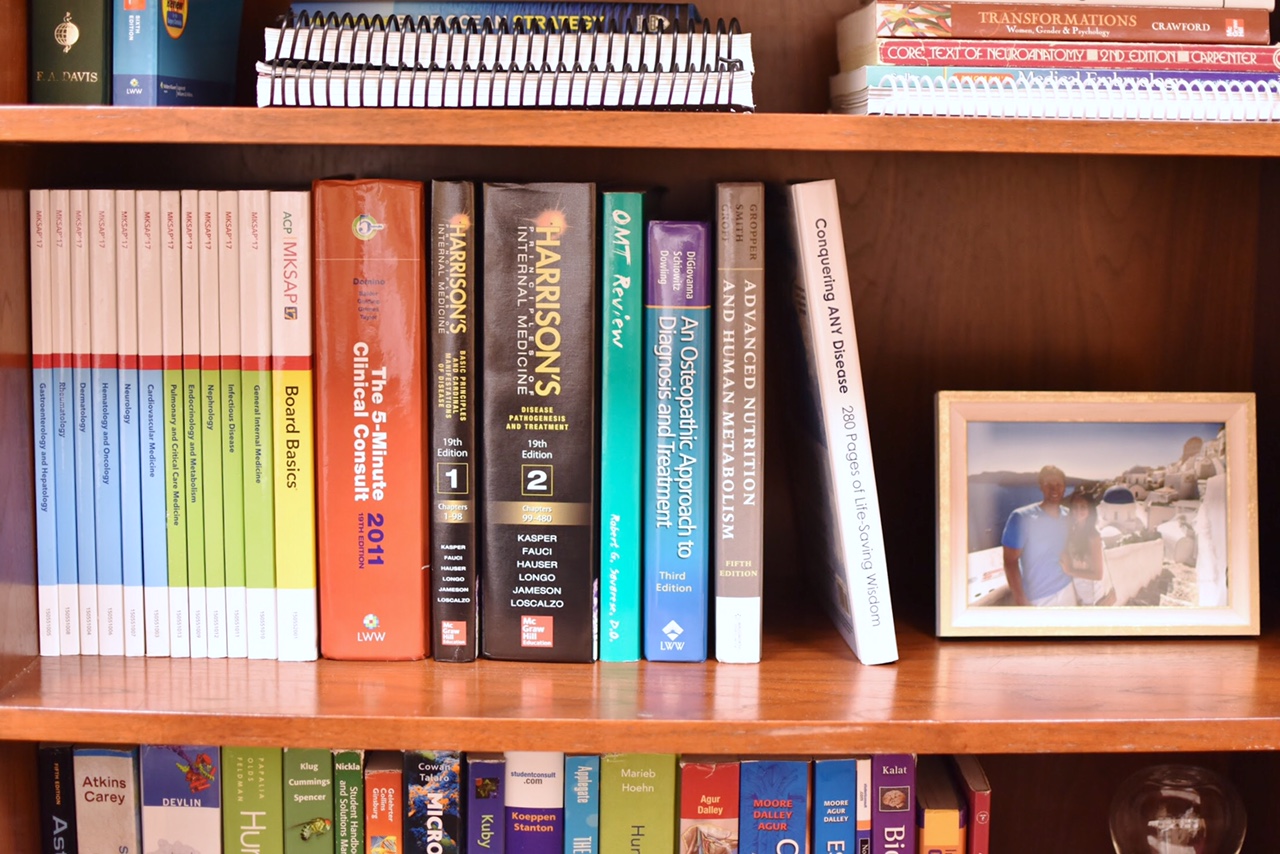
Going back to #1, while it’s important to have a plan, it’s also important to set goals that are achievable. Don’t make your schedule so jam packed that you end up not completing your tasks for that day; this will stress. you. out. To help decide what is realistic and what isn’t, spend one full day studying before you make your entire study schedule so that you can gauge how long it takes to complete each task. By doing this, you will have a better idea about how many things you can give yourself to do, depending on how much time you have to study that day.
3. Don’t Rush Yourself
If you end up giving yourself too many tasks for one day and you realize that you aren’t going to get through them all, don’t rush yourself. If you try to cram things in anyway, you won’t be putting as much effort into actually learning the material, and chances are you wont remember the content as well. What I do in these situations is take the tasks I know I won’t get to, and tack them onto days where I might be able to shorten my lunch break, or add an extra study hour on to one day. This will give you some extra time to spend on those topics without speeding through them completely.
4. Stick to a Few Methods
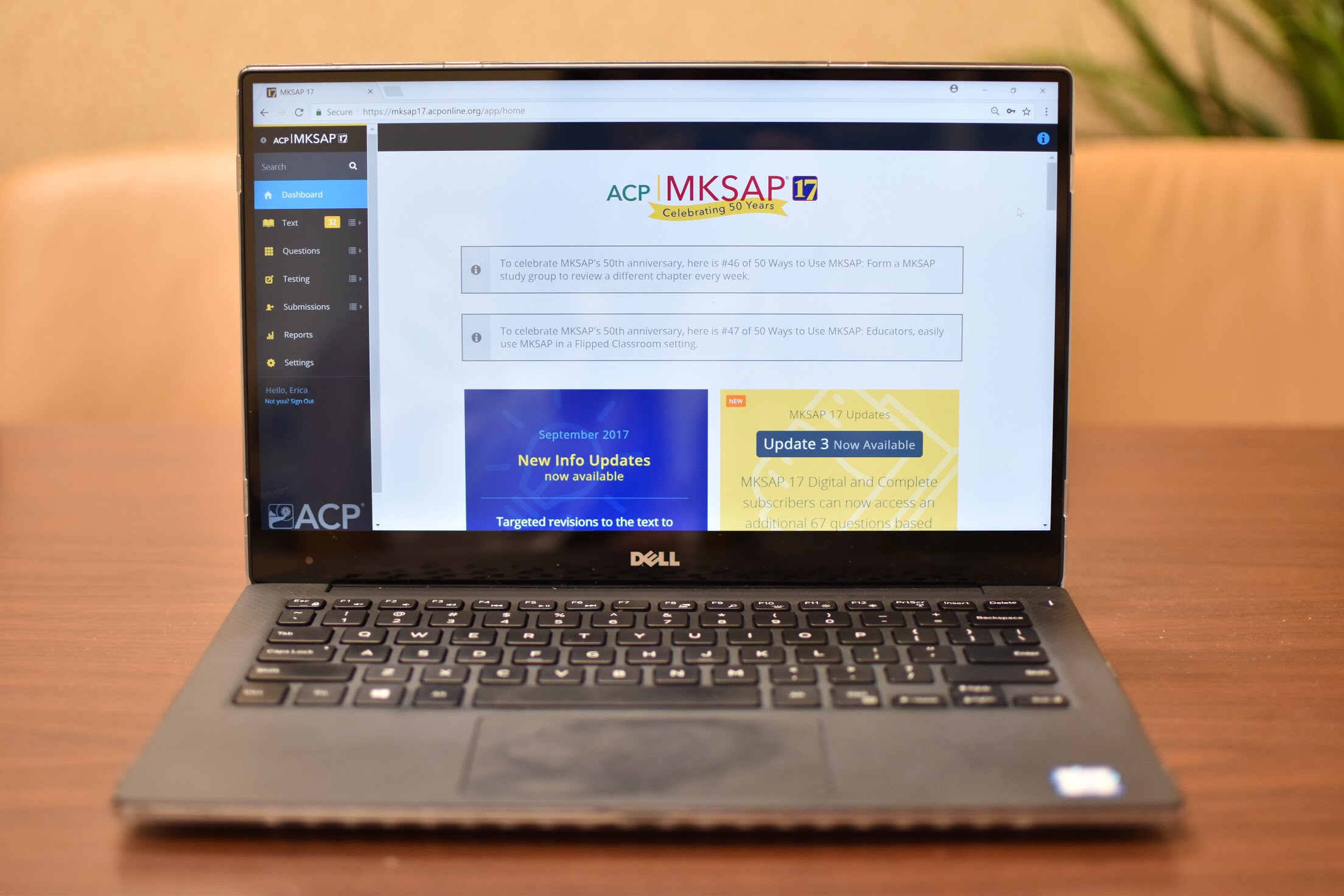
When I first started studying for standardized tests, I thought more was better. More books, more question banks, etc. The more I could read the more knowledge would be stuck in my head, right? Wrong. What ended up happening was I would half-ass studying most of the material without taking the time to actually learn it. Since then, I discovered that the best way to study was to stick to one of each method; One text book, one Q bank, and one supplemental “written” notebook. By doing this you eliminate the stress of multiple sources giving you different information (which happens pretty frequently) and you can focus on getting through the material multiple times (instead of reading multiple sources only once).
5. Do What Works For You
By now, you should have a general idea of how you like to study. For me, flashcards never really helped, but answering questions, reading the explanations of why I got it right (or wrong), and taking my own notes, does. If you know that studying on your own is better, and you are less productive in a group setting, don’t waste your time trying out something new. For me, I like studying alone for the most part, but reviewing the material with someone else for a few hours at the end of the day. I feel that this reinforces what I read earlier and helps it stick better, but everyone is different, so at this point in the game stick to what you know works best for you.
6. Take a Review Course
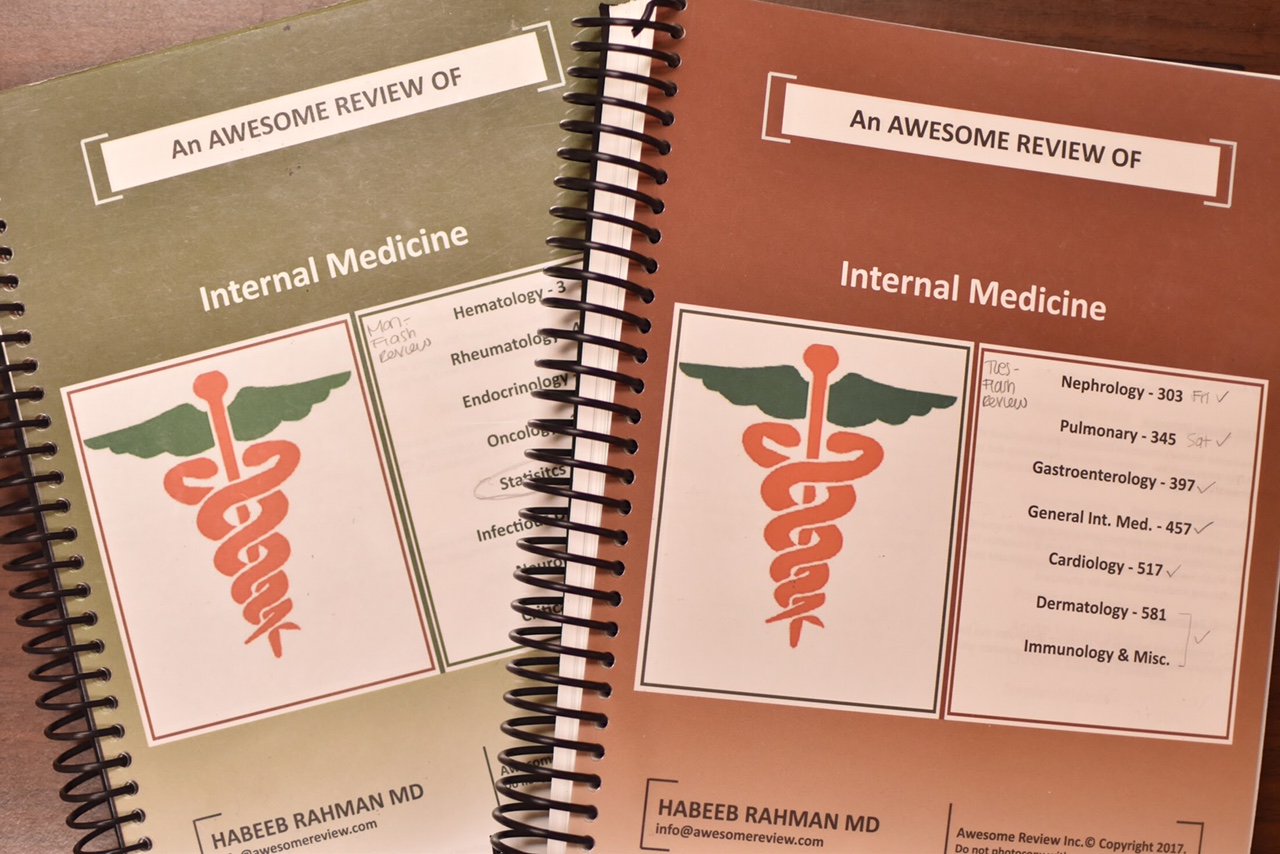
I did this for the MCAT, but not for any of the Steps, so when someone recommended it to me for my IM Board Exam I was a little skeptical. I can now confidently say it was one of the best decisions I made. Having someone (who is highly experienced and knowledgeable in that area) tell you what they think is important for you to know for an exam is definitely helpful. By doing this, I was able to focus on the “high yield” material, and weed out some other topics that were less important for the exam. Ask around for opinions on different review courses you can take, and make sure the one you sign up for is legit. I used Awesome Review for my IM Boards and would highly recommend it to future test takers.
7. Pick a Good Study Spot

Location, location, location. Probably one of the most important things to me when it comes to studying, is where I am studying. My #1 goal is finding places that are both conductive to studying and also offer sustenance, because my life typically revolves around when my next meal will be. Other things that I take into account when picking a good study spot are: 1. Whether or not there is WiFi available, 2. Do they serve good coffee? 3. Is there enough space to sit and spread out my study materials? 4. Are there enough outlets in case I need to plug in my laptop, and my cell phone, and my headphones… (you get it), and lastly, 5. What is the ambiance like- my go to is usually well lit with some noise, but not enough to be distracting.
8. Give Yourself Breaks

No one can study for hours straight and still feel sane by the end of the day without taking breaks; and I don’t mean just to eat and to sleep. When making your schedule, make sure to include time slots for breaks so that you can refresh your mind. You can either put breaks in at specific times (for ex: 30 minutes at 11 am), or after you complete a specific task (like little rewards). My breaks usually consist of taking a walk to get more coffee, sitting outside and enjoying some fresh air, or watching endless videos of animals on Instagram. Whatever you do, make sure to set a timer so you know when your break is up and it’s time to get back to grind mode.
9. Do Things to Relieve Stress

Aside from adding short breaks into your schedule, there are other things you can do to relieve stress. My main one is running. When I’ve had a long day of studying, I throw on some work out clothes, my favorite running shoes, the right playlist, and just run. Whatever it is you’re doing, whether its working out, catching up on some T.V., or preparing a nice healthy dinner for yourself (just some of my other favorite stress relievers), try to be focused only on that, and not to think about anything you learned that day. I promise when you’re done you will feel so much better.
10. Just Some Extra Tips
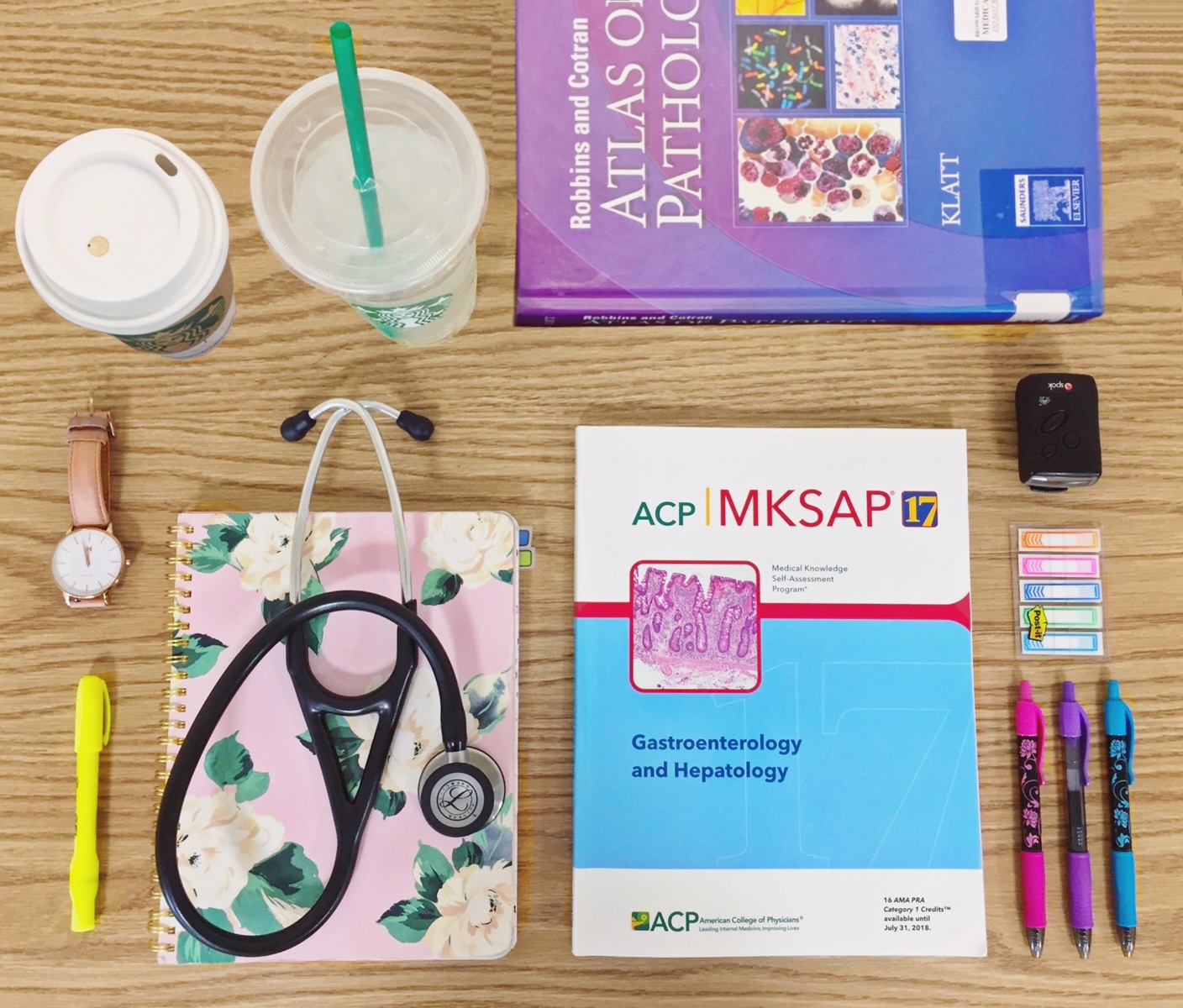
There are a few other things I have learned over the years which have helped me stay in the zone while studying. If you are planning on studying somewhere that doesn’t serve food, pack your own lunch. This will eliminate time wasted wondering where you have to go if you get hungry (or hangry), or time wasted packing up your study area to relocate somewhere else. Next, come prepared with whatever tools you like to study with. For me, this includes colored pens, highlighters, white out (since I’m OCD), a notebook, and chargers. Make sure you have these things with you before you leave the house so you are not stranded without them all day.
ABIM prep: When I realized it was time to buckle down and start seriously preparing for the ABIM (American Board of Internal Medicine) I did all of the steps above. I scouted out good study spots, made my schedule in advance, and signed up for a review course that was recommended to me. I read through all of the MKSAP books from January through June, and finished just before my review course. Afterwards, I had another two months to go over the review course material twice, and do as many questions as I possibly could. I only looked at the MKSAP books again when I needed a supplemental material to test questions or my review course notes. Fast forward to now, two months later, and I found out I passed. No more exams for 10 years!
 As I stated earlier, everyone is different and my methods might not work as well for you, but overall these 10 steps can pretty much apply to anyone taking any big exam. I hope this article helped you, and if you have questions or need some other advice, don’t hesitate to reach out to me (as some of you already have).
As I stated earlier, everyone is different and my methods might not work as well for you, but overall these 10 steps can pretty much apply to anyone taking any big exam. I hope this article helped you, and if you have questions or need some other advice, don’t hesitate to reach out to me (as some of you already have).
Good luck and good studying!
XoXo
-Erica

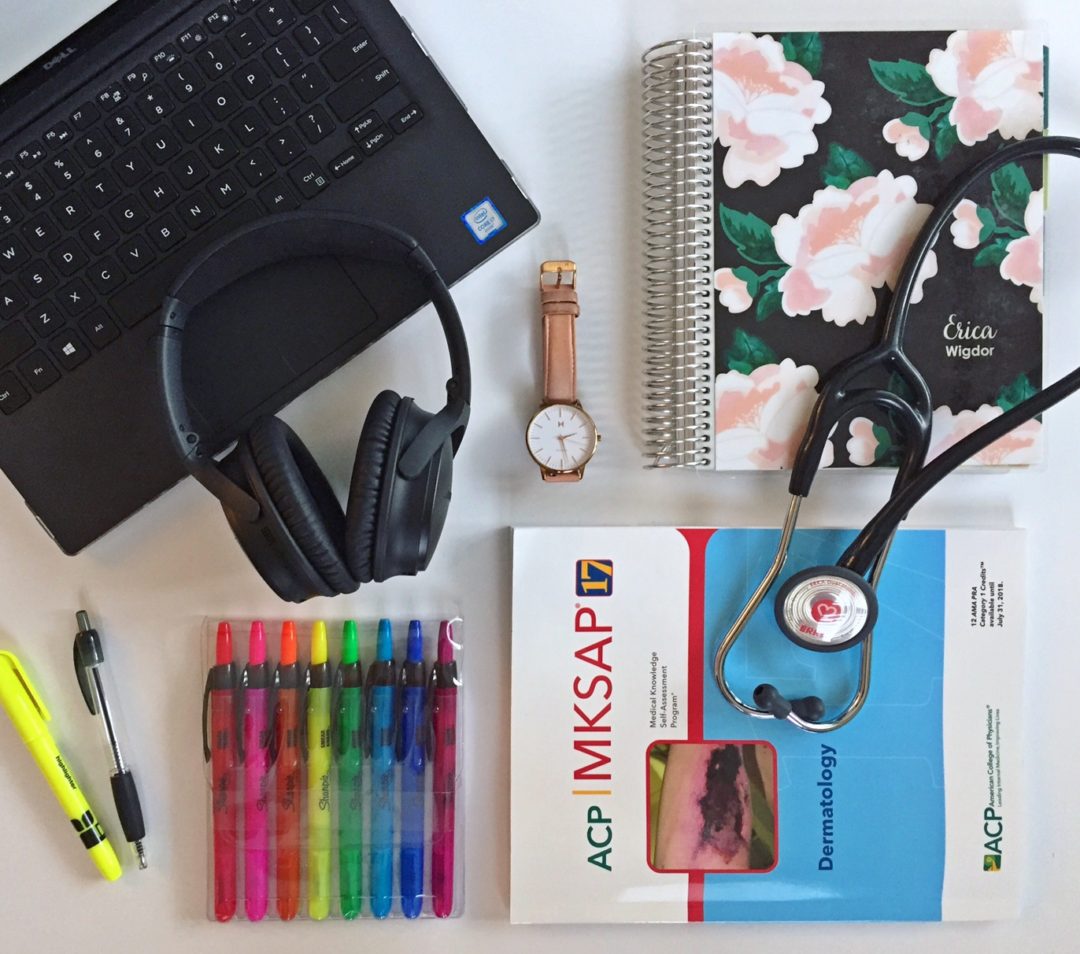

No Comments